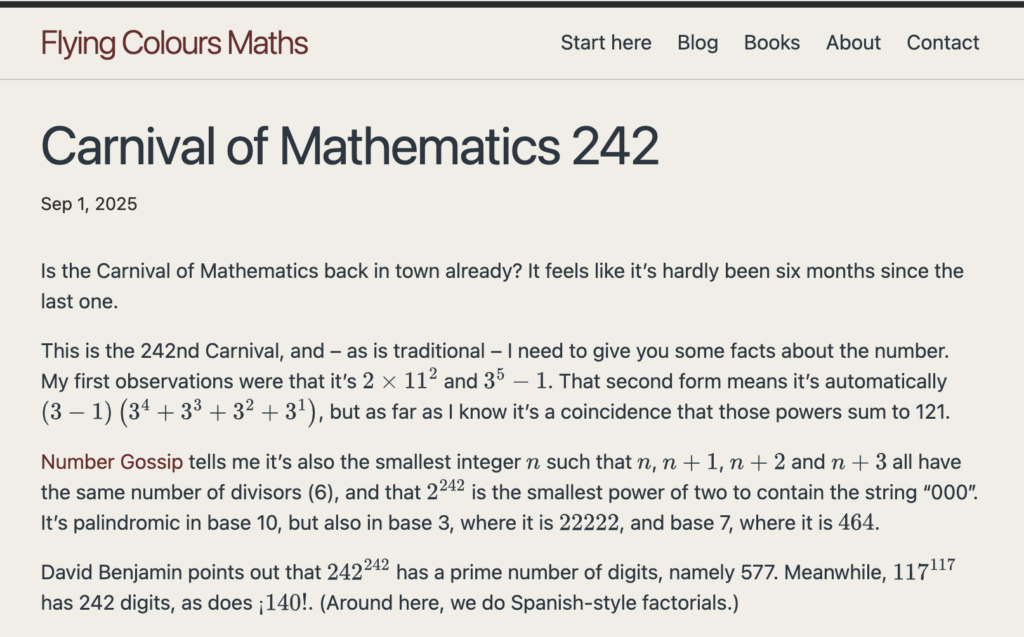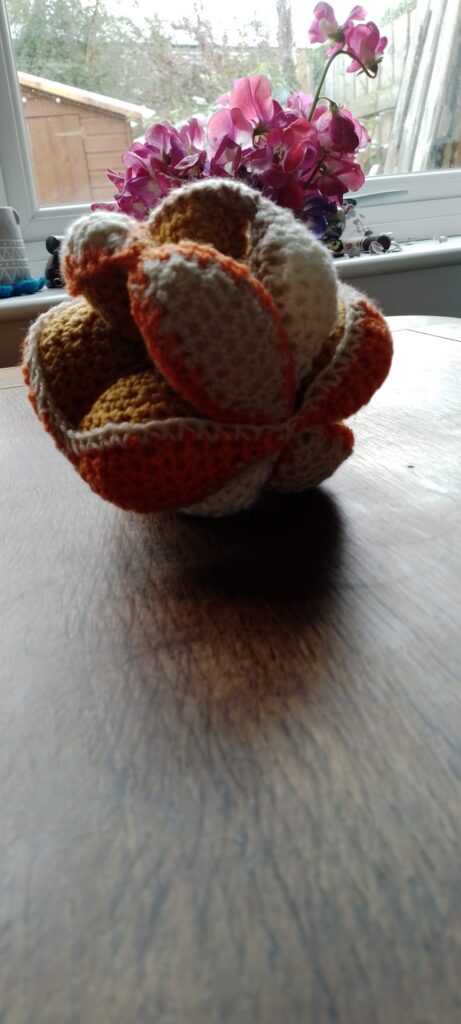DMFT turns around, and every now and then it falls apart
Hello! My name is Colin and I am a mathematician on a mission to spread joy and delight in mathematics. I’m tutoring a bit of Further Core Pure 1 this year, and it was quite instructive to do a paper and find that I’m not immune to careless arithmetic errors or missing entire sections of a question. Oops. (It’s also reminded me that there are things I understand only at a shallow level and that means I get to do some exciting thinking soon.)
Two admin notes: firstly, my apologies to Helena Verrill, whose name I misspelt in last week’s email. I’ve corrected it on the Aperiodical version, but obviously I can’t fix an email after it goes out. Sorry, Helena!
Secondly, I mentioned a dice problem a few issues back, but forgot to mention that it’s a variant of the Ross-Littlewood paradox.
Links
We had a lunar eclipse at the weekend! Only I messed up my timings and missed totality. I did produce representations of my (very likely flawed) mental models of lunar phases and lunar eclipses.
A few months ago, I referred to a monostable tetrahedron that had been discovered both in theory, and on Colin Wright’s desk. Matt Parker has a video about it.
Speaking of the moon and of Colin, he recently shared a video of our dearly-missed mutual friend Adam Atkinson, telling the heavy boots story. I’ve certainly shared that before, but it’s always a delightful memory.
There are many pressing problems in the world. One of the most pressing is, of course, how to cut an onion into the most regular pieces possible.
Not strictly maths-related, but I was inspired by the story of Frances Oldham Kelsey on Cautionary Tales, standing up for science when it would have been politically much easier to fold.
I think we can all agree that anyone who tries to map the Earth on a 2D surface is fighting a losing battle – but at the same time, some efforts are more valiant than others. This project aims to get the areas right, at least.
As a key (and occasionally off-key) member of the Pseudorandom Ensemble, I’m a fan of pseudorandom things – such as, for instance, a method of producing pseudorandom numbers in one’s head. (Meanwhile, Kit Yates is rocking some of our merch.)
Currently
If you’re in charge of children and want to do some maths with them – and what else would you do? – Alison Kiddle and Katie Steckles’s 15 Minute Maths Shop is open for business.
The final TMiP animation challenge of the year is drawing to a close – if you want to animate something related to space-filling curves, you can share your work there.
Margaret Low, who ran a reportedly excellent workshop at TMiP, is running a free online introduction to Turtlestitch next Wednesday, September 17th. Details here.
The University of Illinois Urbana-Champaign has a call for mathematical art for a common room. Deadline for proposals is December 1st.
That’s all I’ve got for this week. If you have friends and/or colleagues who would enjoy Double Maths First Thing, do send them the link to sign up – they’ll be very welcome here.
If you’ve missed the previous issues of DMFT or – somehow – this one, you can find the archive courtesy of my dear friends at the Aperiodical.
Meanwhile, if there’s something I should know about, you can find me on Mathstodon as @icecolbeveridge, or at my personal website. You can also just reply to this email if there’s something you want to tell me.
Until next time,
C


